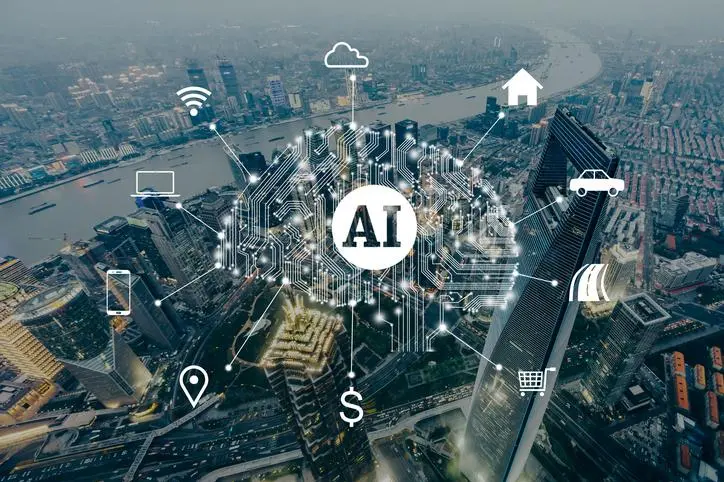PHOTO
Artificial intelligence (AI) and data analytics in healthcare, trade and transportation are set to boost several ancillary industries and provide huge growth opportunities for the businesses in the GCC.
While the UAE government is figuring out opportunities in artificial intelligence to make targeted investments, the private sector should venture into the area more robustly as no business sector is immune from new technologies and right investments now will set the tone for future growth, according to the German-Australian scientist and AI expert Dr. Christian Guttmann.
The widespread adoption of self-driving technologies is likely to impact 100 business segments including healthcare, transportation, telecom, drive-thru restaurants etc, Guttmann said, adding, there are growth prospects for all if right investments are made in right projects.
According to data consulting firm IDC, spending on AI in the Middle East and Africa (MEA) region is estimated to rise 43 per cent 2019 compared to last year. The region is likely to spend $374.2 million on AI-enabled platforms and projects this year.
Increased IT spending in 2019 is likely to boost the adoption of new technologies in this region. The IT spending in the Middle East and Africa (MEA) is estimated to be $83.7 billion in 2020 – a growth of 2.8 percent year on year, IDC noted.
Integration of technologies is a big trend, and the leaders of organizations such as Dubai’s Emaar and RTA should work towards modifying business models and work culture to reap the complete benefits of AI and machine learning, said Guttmann, who is also the executive director of Nordic AI Institute.
While the European Union is targeting 10 billion euros worth of investment in AI-related projects, the UAE is taking an approach to develop AI skills from within. Abu Dhabi has launched the world’s first AI-dedicated university. Mohammed Bin Zayed University of Artificial Intelligence (MBZUAI) is set to offer masters and PhD programmes in machine learning, computer vision and natural language processing from September 2020.
Besides being the next big thing, the programme in natural language processing at MBZUAI makes perfect sense in a country that houses residents from more than 180 countries.
“Natural language processing will be the biggest trend for the next few years in the AI field,”Guttmann said.
“Self-driving cars and collaborative AI – hybrid of human and technology - would be the other two trends in the near-term,” he added.
The AI expert was in Dubai last week to attend the two-day Dubai Artificial Intelligence in Sports (DAIS) conference and exhibition organized by Dubai Sports Council.
According to IDC, enterprises will account for close to 56.8 percent of that figure, with the telecommunications, finance, government, and manufacturing sectors continuing to be the biggest spenders. However, it is the transportation sector that will see the fastest growth over the coming years, followed by utilities and retail and wholesale.
With digital transformation (DX) increasingly shaping the investment decisions of organizations across the region, consumer and enterprise mobility will account for the largest chunk of spending in 2020 at $40.0 billion, followed by the Internet of Things at $9.1 billion, it said, adding, the quest for DX will drive investments in other emerging technologies too, with cloud ($2.7 billion), big data and analytics ($2.7 billion), and security ($2.9 billion) expected to be key areas of investment in 2020.
(Reporting by Syed Atique Naqvi; Editing by Seban Scaria)
Our Standards: The Thomson Reuters Trust Principles
Disclaimer: This article is provided for informational purposes only. The content does not provide tax, legal or investment advice or opinion regarding the suitability, value or profitability of any particular security, portfolio or investment strategy. Read our full disclaimer policy here.
© ZAWYA 2019




















